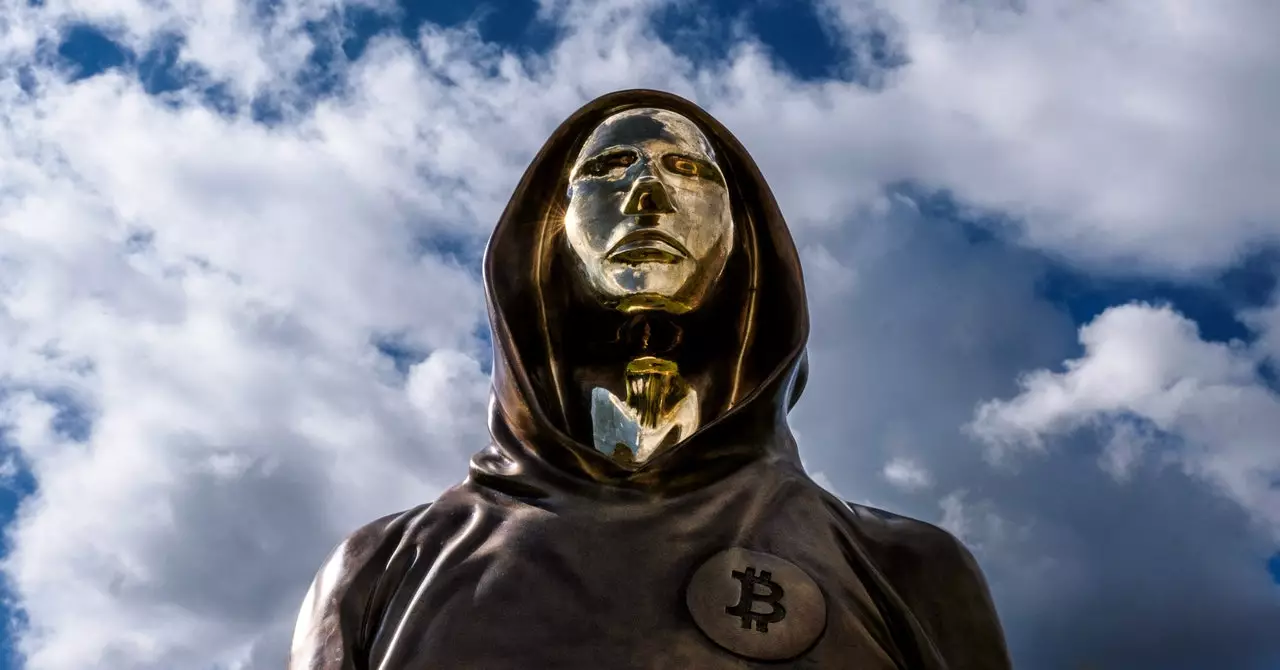The identity of Satoshi Nakamoto, the elusive creator of Bitcoin, has sparked intrigue and speculation since the cryptocurrency’s inception over a decade ago. Despite extensive investigations and fervent theories, the true identity of Satoshi remains one of the greatest mysteries in the modern financial world. This complexity is epitomized in the recent HBO documentary “Money Electric: The Bitcoin Mystery,” where documentarian Cullen Hoback confronts several personalities who have been implicated in the Satoshi debate, continuing the hunt for clues that could lead to a definitive reveal.
Peter Todd, a known figure in the blockchain community, finds himself at the center of scrutiny when Hoback suggests he could be Satoshi. Todd’s immediate and dismissive reaction underscores the absurdity that often shrouds claims regarding the Bitcoin creator’s identity. “For the record, I am not Satoshi,” Todd states, casting doubt on the viability of ever uncovering the truth. This conversation reflects the larger narrative about the futility of pinning down a single individual as the mastermind behind Bitcoin, as Todd aptly points out, “People have suspected basically everyone of being Satoshi.”
The difficulty in identifying Satoshi extends beyond mere speculation; it taps into deeper philosophical questions about identity and intent. Over the years, many have been implicated as potential “Satoshis,” including notable figures like Hal Finney and Nick Szabo. Each of these candidates brings their own stories, credentials, and arguments to the table, yet none have emerged with solid consensus to validate their claims. The ambiguity surrounding Satoshi’s identity is compounded by the cryptographic nature of Bitcoin itself, which thrives in a decentralized environment where no single entity holds authority.
Mainstream media’s fascination with Satoshi has fueled community conspiracies, significantly impacting public perception of Bitcoin’s origins. Notably, a 2015 article by WIRED, alongside Gizmodo, hinted at Australian businessman Craig Wright as a strong candidate for being Satoshi. This claim sparked outrage and further investigation, leading to conflicting narratives about Wright’s involvement in the Bitcoin creation story. Despite the initial allegations being met with considerable support, subsequent analysis exposed discrepancies and led to a UK High Court ruling that discredited Wright’s claims to Satoshi’s identity.
Such instances serve as a reminder of the consequences of speculation in a space that values anonymity and cryptography. The ramifications of declaring someone as Satoshi can be profound, resulting in legal battles and a cloud of misinformation that pervades the Bitcoin community. As debates rage on, the quest for the “real” Satoshi often feels less about the truth and more about the human penchant for storytelling and myth-making.
In an ironic twist, many Bitcoin advocates argue against the necessity of discovering Satoshi’s true identity. They contend that the strength of Bitcoin lies in its decentralized nature, free from the influence of a singular creator. By embracing a broader definition of Satoshi—where “everyone is Satoshi, and nobody is Satoshi”—the community fosters a sense of collective ownership and responsibility over the cryptocurrency’s future. This anonymity bodes well for Bitcoin’s theoretical framework, which champions a system where no individual can wield undue authority.
Moreover, this belief in shared identity enhances Bitcoin’s resilience and adaptability. Without a central figure, the cryptocurrency can evolve organically, driven by the collective will of its users rather than the directives of a founding individual. This ideological stance champions the essence of Bitcoin as a peer-to-peer network, separating it from traditional businesses eager for charismatic leaders.
As speculation about Satoshi’s identity continues without resolution, the community must grapple with the implications of these mysteries on Bitcoin’s ongoing success. Whether through documentaries like “Money Electric” or media reports, the identity of Satoshi remains a topic that simultaneously captivates and frustrates. The importance lies not solely in unveiling the enigma but in recognizing that the real value of Bitcoin may reside in its ability to empower decentralization, innovation, and community-driven governance.
As the hunt for Satoshi Nakamoto persists, it reveals as much about human nature and society’s relationship with technology as it does about cryptocurrency itself. Bitcoin has evolved into a symbol of collective aspiration, and its obscured creator serves as a testament to the potential of decentralized finance—one that may exist without a singular driving force. Thus, the search for Satoshi might not be about finding a person but understanding the movement that has transcended any individual identity.

